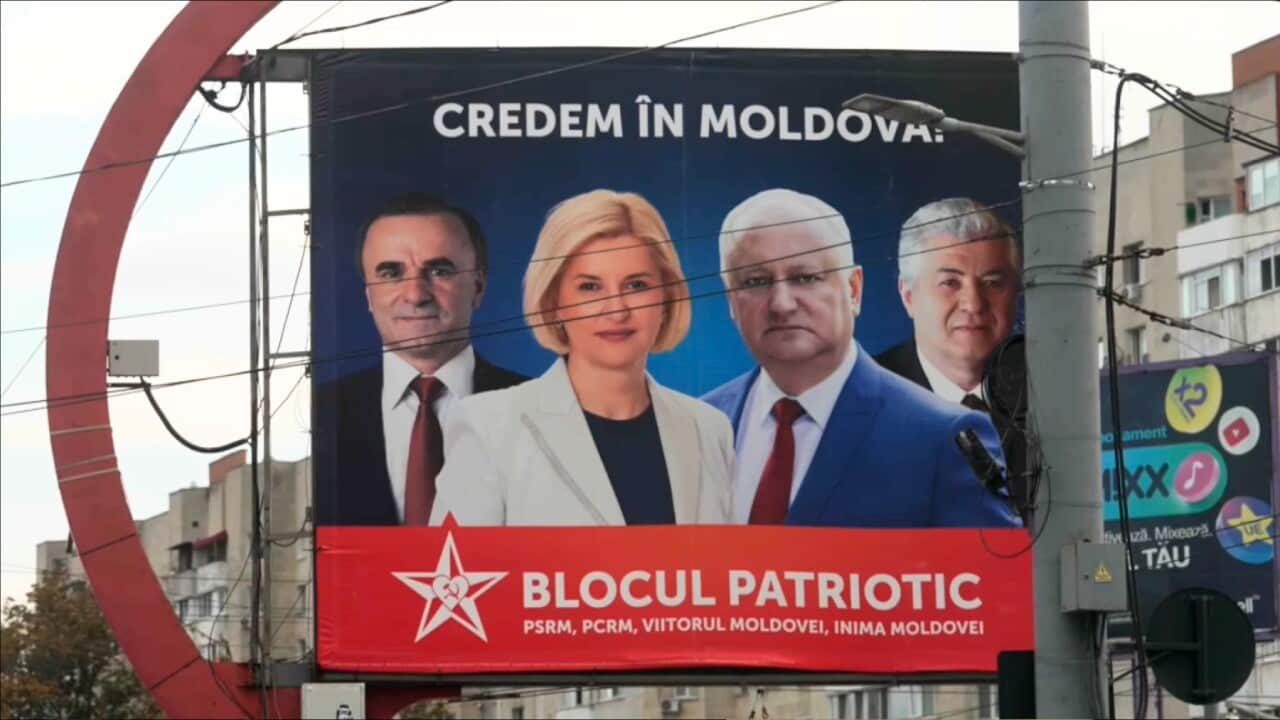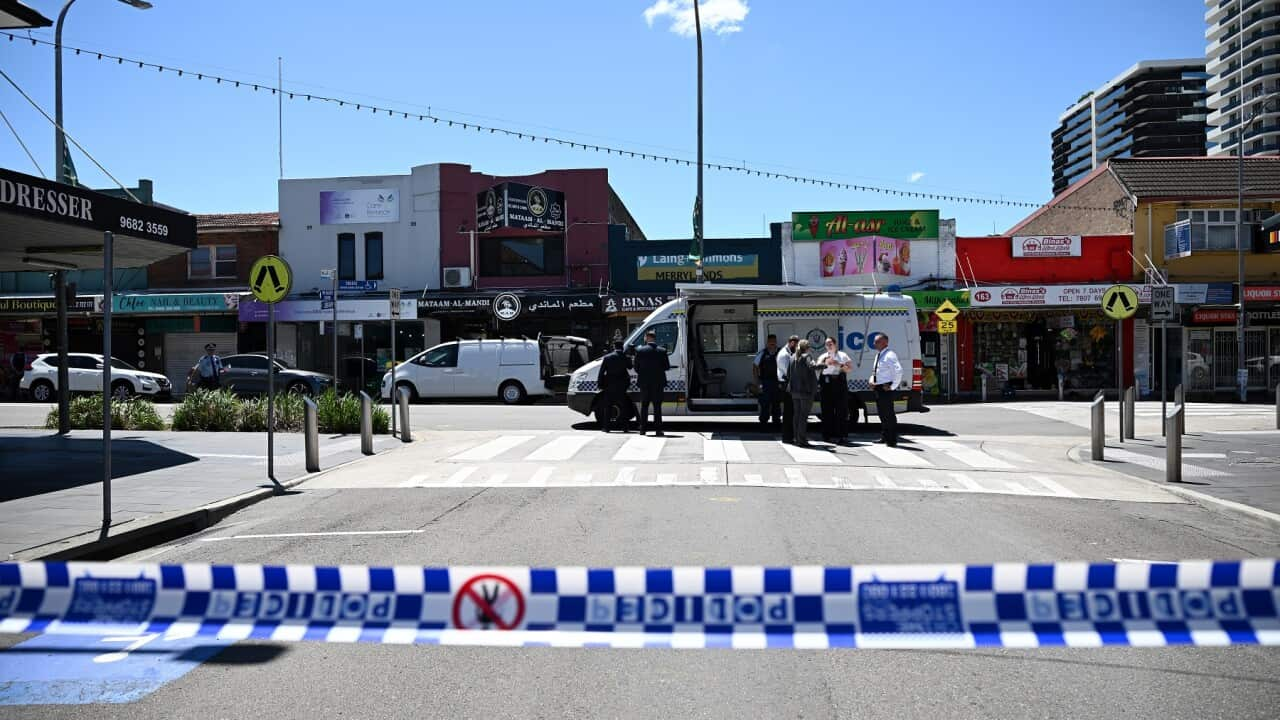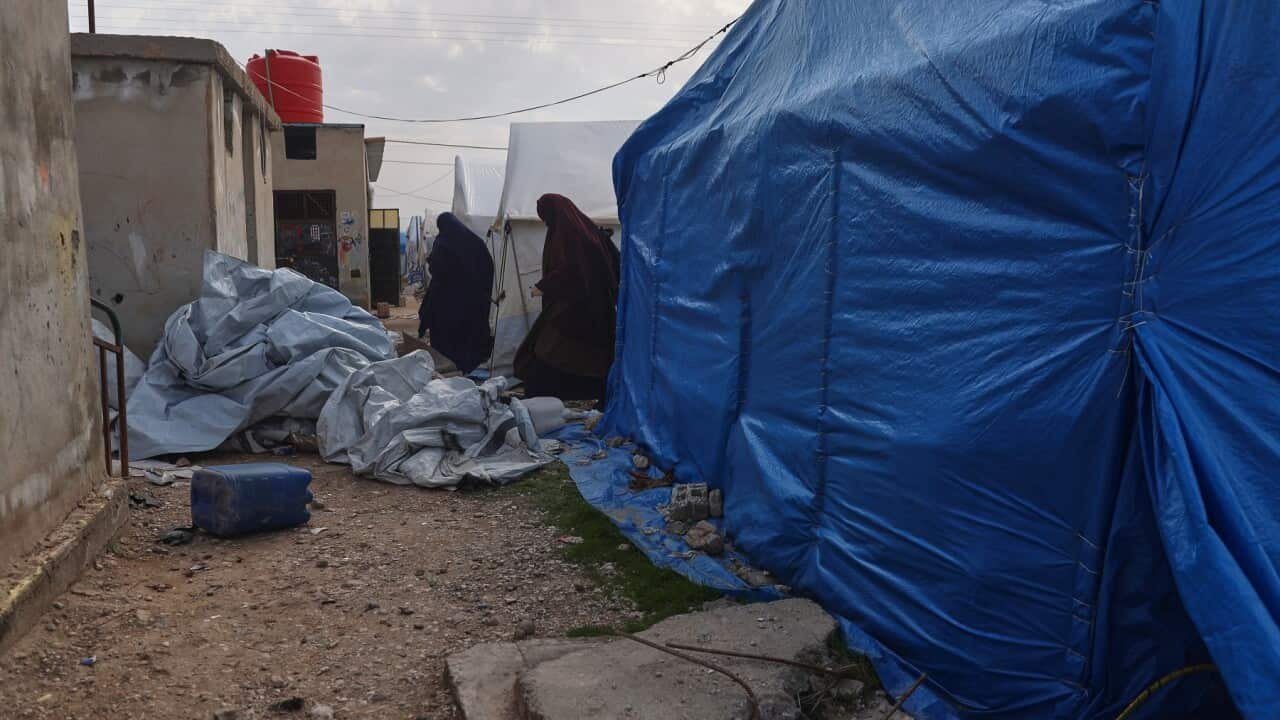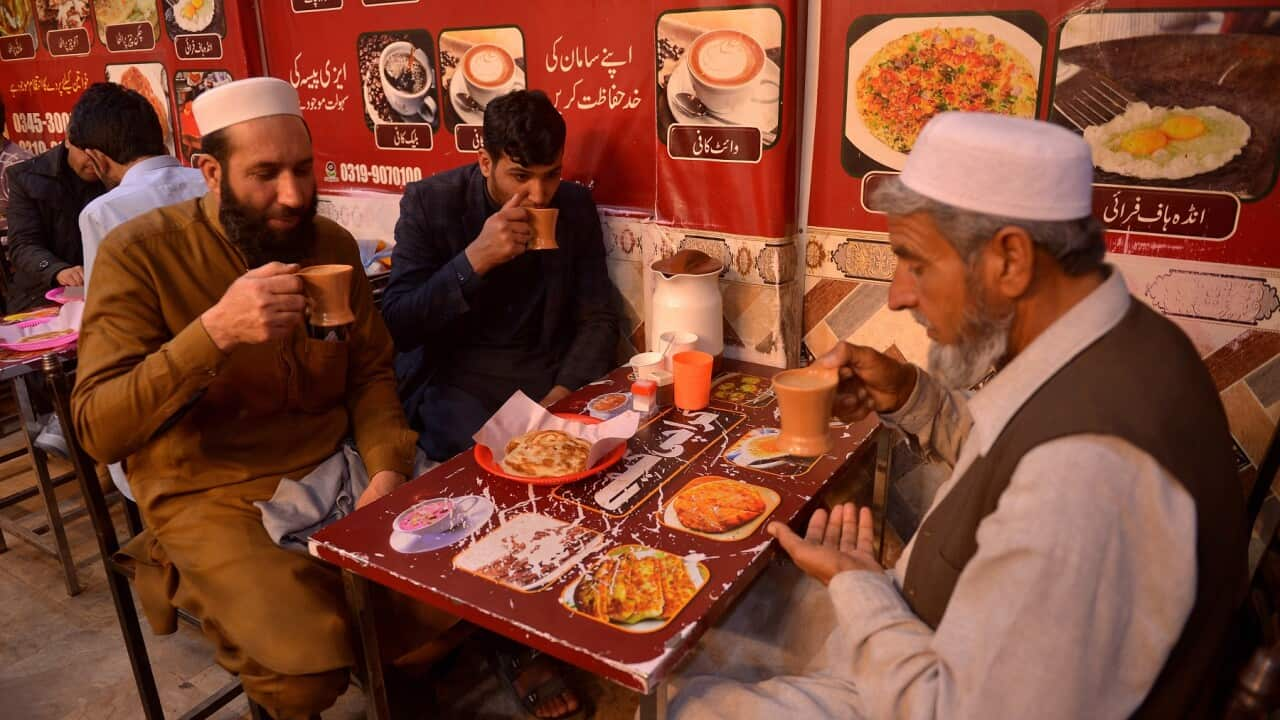Listen to Australian and world news, and follow trending topics with SBS News Podcasts.
TRANSCRIPT
Like many former Soviet states, Moldova is haunted by its past and hoping for a better future.
Reminders of its history are everywhere…
… statues of Lenin…
… and communist-era apartment blocks…
…now tower over a McDonalds.
Hanging on government buildings, the blue and yellow flag of the European Union.
Moldova’s not a member yet, but many feel it’s the country’s destiny to become one.
Democracy is treasured here.
But the upcoming parliamentary elections, which could shape Moldova for a generation, are facing unprecedented interference.
“This person is a virtual AI”
“At least 40% of votes are the result of this nasty phenomena.”
“They are political parties financed, created and supported by Russia.”
“I cannot imagine how Russia can send us money. I want to see the proof.”
This is the story of how Moscow is trying to buy influence, in a country that has been trying to escape the Kremlin’s orbit.
Gaining independence after the fall of the Soviet Union, Moldova is quite literally in a difficult position:
… Romania and the European Union to the west…
… Russia to the east…
… and the War in Ukraine on its border.
Complicating matters, there’s Transnistria, a separatist region whose government is not recognised internationally but is supported economically, politically, and militarily by Russia, which has several thousand soldiers there.
Moldova’s president, Maia Sandu, won re-election last year.
She’s in favour of European Union membership, and recently welcomed the leaders of France, Germany and Poland to the Moldovan capital, Chisinau…
“The cruel war waged by Russia against Ukraine shows us daily, Europe means liberty and peace. Putin's Russia, means war and death."
Her Party of Action and Solidarity - PAS for short - could lose its majority in upcoming parliamentary elections, with Russia-friendly opposition, like the ‘Patriotic Bloc’, on the rise - thanks in part to a disinformation and propaganda campaign, backed by the Kremlin.
In a quiet apartment building just outside the centre of Chisinau are the headquarters of Watchdog, a Moldovan NGO which tracks voter fraud and misinformation.
It has uncovered a vast network of social media profiles…
… some run by real people under false identities…
… others a mix of automated and human activity…
… spreading lies about Moldova’s government… the EU… and the War in Ukraine…
Anything that benefits Russia.
"This video is AI?"
“So this shows that Romania controls the republic of Moldova”
It’s fake news, which is then shared and spread - sometimes by real people, sometimes by bots.
Investigators identified 900 accounts in this network, but believe the true figure is potentially in the tens of thousands.
Valeriu Pasa is the group’s executive director.
“Anything you can imagine and multiply it 10 times. So it's something which never happened in any other place. The intensity, the quantity, the spread, the formats, channels, topics, everything from AI -generated content to top political parties repeating and amplifying Russian narratives here. So it's everything you can imagine and much more.”
It’s not just about the digital space.
Moldovan oligarch, and Kremlin-aligned fugitive Ilan Shor recently posted a video on Facebook promising to pay protestors three thousand US dollars to join anti-government demonstrations.
And that’s comparatively small change.
Following last year's presidential election and a referendum on EU integration, which only narrowly passed, Moldovan authorities reported thousands of cases of voters receiving money from Russian bank accounts.
The Kremlin denied any involvement.
Valeriu Pasa says it’s a massive cash-for votes scandal…. Orchestrated by Moscow.
“Our estimation is that last year Russia spent here at least 150 million euro for this interference. Authorities are talking about 200 million last year for this referendum and presidential elections. To give you a sense, this is more than 1 % of our GDP.”
“That’s a crazy amount of money to spend.
“In any country. But we are a small tiny country and poor.”
Watchdog accuses the pro-Russian Patriotic Bloc of benefiting from Russia’s disinformation onslaught.
So we went to meet Olga Cebotari, a candidate for the Socialist Party… the bloc’s biggest member.
“Has the Patriotic bloc received any financial support from Russia, political advice from Russia, has it received any help from Russia in this campaign?”
“You ask about financial, we have central electoral commission. I cannot imagine how Russia can send us money, if something like this will happen, it means on second day, cheque will say goodbye to us. It’s impossible.”
The Socialists insist they’re not anti-West, and favour ties with both Moscow and Brussels.
Yet when it comes to the war raging next door, they refuse to blame Vladimir Putin, citing Moldova’s neutrality, which is written into its constitution.
“Neutrality means that you need to be neutral and to see what really happens, not to say I'm with you, against you.
“Russia has invaded your neighbour. It routinely fires missiles and drones into Odessa, which is not that far away at all from here. Why would Moldovans want closer ties with Moscow?
“You know, the same thing happens from Ukraine. Our missiles from Ukraine also are on Moscow. on the territory of Moldova and we see the same situation. So we cannot say that missiles from Russia are bad or from Ukraine are not.”
“It's very different. Ukraine is not targeting I mean, this direction, is it?”
“Even Russia is not targeting. It happens when the missiles of Russia are, for example, by mistake, are on our territory. It's also made by mistake, and the same is made by Ukraine.”
That perspective’s not as rare as you might think.
We’ve driven an hour south of the capital to Gagauzia, an autonomous region of Moldova.
Russian is the main language spoken here. And views on the Kremlin are very different to what you’ll hear in the rest of the country.
It looks… and feels… like a different world… the signs are in Russian… the economic situation is clearly worse than in the capital.
Despite the fact the area has received significant EU development funds recently… pro-Russian parties will dominate the vote here.
“I was born in the Soviet Union. I speak Russian and Gagauzian. I want my country to be prosperous.”
Larissa runs a small market shop selling socks and underwear.
She insists she has no problem with Europe… but wants closer ties to Russia.
President Putin’s War in Ukraine… is seemingly not an issue for her.
“As far as I know, Russians are good, kind people. They would never start a war. When did Russia start a war? When did they bomb someone? Tell me.”
“Look at Ukraine, there’s a war there now.”
“But why, what’s the reason? Because the Russians within Ukraine were oppressed.”
That’s a Kremlin talking point.
One heard a lot here.
“Lots of people believe that Russia should own this land. So actually Russia should restore the Soviet Union, but in fact the Russian Empire, and to run this place.”
Trying to fight this attitude - or at least provide counterbalance - is independent media outlet Nokta, and its editor Mihail Sirkeli.
He points out Russia’s weaponisation of media to spread its message is not new.
And it’s why its digital operation has been so effective.
“Soviet Union collapsed, but people still continue to watch Russian television, the television actually produced in Moscow. And television, because we were too dumb to not understand that actually this is the weapon and Russia will weaponize it. We understood it very late. And before we understood it, actually, they already weaponized the people.”
In Moldova’s west, not far from the Romanian border, it’s harvest season.
We watch students picking the vines, part of a program to encourage young people to join the booming industry.
Grapes have been grown in this region for more than 5,000 years.
Ion Luca is a local winemaker.
“We think during this 5 ,000 year we learned a little bit how to do a good wine. Now our task is to promote it as well because everyone knows about Yellowtail or everyone knows about Penfolds, but nobody knows yet about a good Moldovan wine.”
Russia and former soviet states were once the biggest buyers…
But that has changed over the last decade.
The idea of Moldova turning its back on the West worries Ion… who could lose access to the critical European market.
“Concerned is not the right word. I'm terrified. I cannot imagine Moldova going again the path to getting closer to a criminal state. Russia is a criminal terrorist state. I'm born in USSR. I lived the last 10 years of USSR and I don't want it anymore.”
He says he’ll vote for PAS, hoping to ensure Moldova’s march towards European integration continues.
The government claims pro-Russian parties would seek to slow, or even stop the EU application process as has happened in nearby Georgia - and potentially drag the Moldova into conflict.
Radu Marian is a PAS government minister and is running for re-election.
“They are trying to install a pro -Russian government in Moldova to use our country to in their war aims to try to pressure Odessa, to use our airport, our infrastructure, Transnistria. This is the big danger. They’re not investing 350 million dollars in these elections, quote unquote, just because the pro-Russian politicians, they do it to try to take over Moldova and to destabilise the whole European continent ”
But some opposition parties, like those in the Alternativa bloc, accuse the government of using the Russian threat for its own benefit, as candidate Gaik Vartanean explains:
“They’re trying to show show this battle as a battle, you know, good and evil, us against everybody else, PAS against all the Kremlin forces. Basically, whoever is against PAS politically is, they are considering as a Kremlin force, which is not true.”
Yet the leader of his party, Chisinau’s mayor, was recently banned from Europe’s Schengen zone for what Romanian authorities described as ‘national security reasons’.
Investigators at Watchdog say the proof of Russian election meddling is undeniable, and that authorities are struggling to keep up.
BEN: “How much of an impact do you think Russian disinformation, interference campaigns, vote buying, all of it, how much impact do you think it is going to ultimately have on this parliamentary election?
VALERIU; “At least 40 % of votes are the result of all this nasty phenomena.”
BEN: 40 “% of votes?”
VALERIU: “At least.”
If Russian proxies take control of the parliament, Moldova can simply lose its sovereignty.
Sovereignty which took a long time to achieve - and could disappear much faster.
Thanks to deep fakes…
… cash for votes…
… and old-fashioned propaganda.













